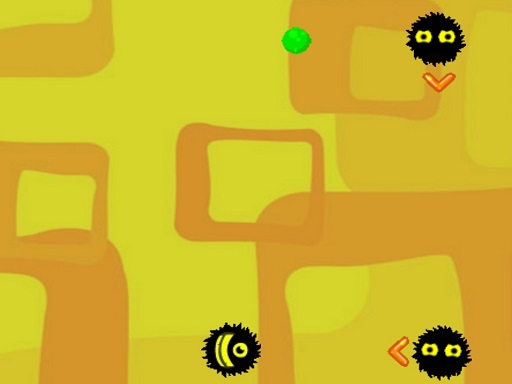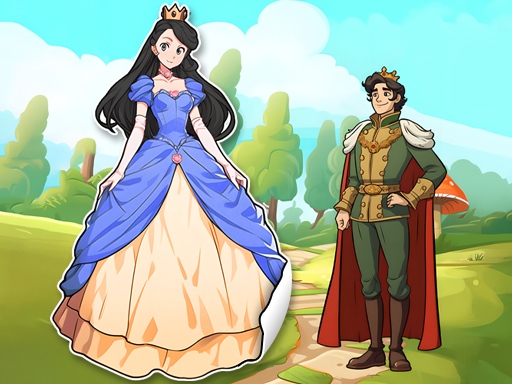Magic Piano Pop Tiles
About Magic Piano Pop Tiles
You know, I’ve always been a bit of a skeptic when it comes to mobile games, especially those in the hypercasual space. I mean, don’t get me wrong, there’s a place for quick distractions, but I’m usually drawn to experiences that demand a bit more from me, something with a sprawling narrative, intricate mechanics, or a competitive edge that really sinks its teeth in. So, when I stumbled upon *Magic Piano Pop Tiles*, I honestly didn’t expect much. I figured it would be another fleeting tap-fest, good for a minute or two on a bus ride, then forgotten. But man, was I ever wrong. This game, it’s just… it’s something else. It completely blew past all my preconceived notions and burrowed its way into my daily routine, and I’m genuinely excited to tell you why.
What I love about games like this is when they manage to take a ridiculously simple concept and execute it with such finesse that it transcends its own genre. You fire it up, and right away, you're presented with a clean, inviting interface. No convoluted tutorials, no endless menus – just music, waiting. The core idea is deceptively straightforward: tiles scroll down the screen, and you tap them in time with the music. Sounds basic, right? But the brilliant thing about this is how immediately satisfying it is. From the very first note, you’re not just passively listening; you’re an active participant, a conductor, a performer. You can almost feel the rhythm pulsing through your fingertips as you watch those black and white squares descend, each one a promise of a perfectly timed beat.
The moment you dive into a song, that’s when the real magic happens. It’s like the game just reaches out and grabs you. You pick a track – and honestly, the selection is fantastic, I’ll get to that in a bit – and suddenly, your screen is alive. Those magic tiles start their descent, a cascade of potential melodies, and your fingers instinctively hover, ready to strike. There’s this incredible tactile feedback, a subtle vibration with each successful tap, coupled with the crisp, clean sound of a piano key being struck. It’s not just a sound effect; it’s *your* sound effect, *your* contribution to the song. You're not just playing *along* with the music; you're actively *creating* it, note by precise note.
And precision, let me tell you, is key. This isn't a game where you can just wildly flail your fingers and hope for the best. Oh no. The game demands your full attention, a focused intensity that pulls you into a state of flow almost instantly. You have to follow the rhythm of the music and click with precision, hitting each tile exactly as it crosses the designated line at the bottom of the screen. Miss a note, and there’s this subtle, almost apologetic little *thud* instead of the satisfying *ping* of a successful strike, and the tile just vanishes. It’s a gentle reminder, a nudge to bring you back into focus. But here’s where the tension really builds: you only get three misses. Three. That’s it. You might be cruising through a complex classical piece, feeling like a virtuoso, and then suddenly, a tricky sequence comes up, your fingers falter, and *thud*. One miss. The pressure instantly ratchets up. You can almost feel your heart rate quicken, your focus narrowing to an almost laser-like intensity. The stakes might seem low for a hypercasual game, but in that moment, when you’re on your last life, trying to nail the final, most challenging section of a song, it feels like the entire world hinges on your next tap. That frustration of failing just before the end, it makes the eventual triumph of a perfect run so incredibly sweet.
What’s fascinating is how the game manages to maintain this delicate balance between accessibility and challenge. Anyone can pick it up and tap a few notes, but mastering a song, getting that perfect score, that requires dedication, focus, and a developing sense of rhythm that you don't even realize you're honing. It’s not just about speed; it’s about timing, anticipation, and connecting with the music on a deeper level. You start to internalize the patterns, the way certain melodies translate into specific tile arrangements. You'll find yourself not just reacting, but predicting, your fingers moving almost before the tiles fully appear, guided by the music itself.
And speaking of music, this is where *Magic Piano Pop Tiles* truly shines. They aren't kidding when they say there's tons of music here. I mean, you’ve got everything from timeless classical piano pieces that make you feel like you’re performing in a grand concert hall, to chart-topping pop anthems that get your head bopping and your fingers flying. I’ve always been drawn to games that offer a diverse soundtrack, because it keeps the experience fresh and exciting, and this game absolutely delivers. One minute you’re gracefully playing through a Chopin nocturne, feeling elegant and composed, and the next you’re absolutely hammering out the beats to a high-energy pop track, feeling the adrenaline pump. The variety is genuinely impressive, and it constantly surprises me with what new songs I’ll discover or what old favorites I’ll get to experience in a completely new, interactive way. Every song feels like a mini-adventure, a chance to immerse yourself in a different musical landscape.
There's something genuinely magical about the way this game transforms familiar tunes. You hear a song you’ve known for years, but now, instead of just listening, you’re performing it. You’re the one bringing it to life, note by note, beat by beat. It creates this incredible sense of ownership over the music. You’re not just a player; you’re the artist. And when you nail a particularly tricky sequence, when your fingers fly across the screen in a blur of perfectly timed taps, and the melody flows out flawlessly, there’s this rush, this surge of pure satisfaction that's hard to describe. It's the same kind of feeling you get when you perfectly execute a complex combo in a fighting game, or land a headshot from across the map in an FPS – that moment when skill, timing, and instinct all align.
In my experience, the best moments come when you lose yourself completely. You start a song, maybe just to kill a few minutes, and then suddenly, ten minutes have passed, then twenty, then half an hour. You’re so absorbed in the rhythm, the visual spectacle of the tiles, and the pure joy of creating music, that the outside world just fades away. It’s a truly immersive arcade rhythm adventure, exactly as they describe it. It's not just a game; it's a meditative experience, a way to clear your head and focus on something pure and immediate. The tension in your shoulders from a long day at work just melts away, replaced by the focused concentration of hitting the next note.
What's interesting is how this game, despite its simplicity, evokes the same kind of emotional connection I get from much larger, more complex games. It's the frustration that makes victory sweeter, the curiosity that drives exploration (of the music library, in this case), and the immense satisfaction of mastering a difficult skill. It’s that universal gaming experience of challenge and triumph, distilled into its purest form. This makes me wonder about the genius of hypercasual design – how something so seemingly small can deliver such a profound sense of accomplishment.
Honestly, if you're like me and you tend to overlook mobile games, or if you just need something genuinely engaging to pick up and play, you absolutely have to give *Magic Piano Pop Tiles* a shot. Don't let the "hypercasual" label fool you. It’s more than just a time-killer; it’s an experience that’s surprisingly deep, incredibly satisfying, and genuinely addictive. You'll find yourself humming the tunes, anticipating the tile patterns, and constantly reaching for "just one more song." It's that friend who always knows the best games, telling you, "Trust me on this one." Go on, tap into that rhythm. You won't regret it.
What I love about games like this is when they manage to take a ridiculously simple concept and execute it with such finesse that it transcends its own genre. You fire it up, and right away, you're presented with a clean, inviting interface. No convoluted tutorials, no endless menus – just music, waiting. The core idea is deceptively straightforward: tiles scroll down the screen, and you tap them in time with the music. Sounds basic, right? But the brilliant thing about this is how immediately satisfying it is. From the very first note, you’re not just passively listening; you’re an active participant, a conductor, a performer. You can almost feel the rhythm pulsing through your fingertips as you watch those black and white squares descend, each one a promise of a perfectly timed beat.
The moment you dive into a song, that’s when the real magic happens. It’s like the game just reaches out and grabs you. You pick a track – and honestly, the selection is fantastic, I’ll get to that in a bit – and suddenly, your screen is alive. Those magic tiles start their descent, a cascade of potential melodies, and your fingers instinctively hover, ready to strike. There’s this incredible tactile feedback, a subtle vibration with each successful tap, coupled with the crisp, clean sound of a piano key being struck. It’s not just a sound effect; it’s *your* sound effect, *your* contribution to the song. You're not just playing *along* with the music; you're actively *creating* it, note by precise note.
And precision, let me tell you, is key. This isn't a game where you can just wildly flail your fingers and hope for the best. Oh no. The game demands your full attention, a focused intensity that pulls you into a state of flow almost instantly. You have to follow the rhythm of the music and click with precision, hitting each tile exactly as it crosses the designated line at the bottom of the screen. Miss a note, and there’s this subtle, almost apologetic little *thud* instead of the satisfying *ping* of a successful strike, and the tile just vanishes. It’s a gentle reminder, a nudge to bring you back into focus. But here’s where the tension really builds: you only get three misses. Three. That’s it. You might be cruising through a complex classical piece, feeling like a virtuoso, and then suddenly, a tricky sequence comes up, your fingers falter, and *thud*. One miss. The pressure instantly ratchets up. You can almost feel your heart rate quicken, your focus narrowing to an almost laser-like intensity. The stakes might seem low for a hypercasual game, but in that moment, when you’re on your last life, trying to nail the final, most challenging section of a song, it feels like the entire world hinges on your next tap. That frustration of failing just before the end, it makes the eventual triumph of a perfect run so incredibly sweet.
What’s fascinating is how the game manages to maintain this delicate balance between accessibility and challenge. Anyone can pick it up and tap a few notes, but mastering a song, getting that perfect score, that requires dedication, focus, and a developing sense of rhythm that you don't even realize you're honing. It’s not just about speed; it’s about timing, anticipation, and connecting with the music on a deeper level. You start to internalize the patterns, the way certain melodies translate into specific tile arrangements. You'll find yourself not just reacting, but predicting, your fingers moving almost before the tiles fully appear, guided by the music itself.
And speaking of music, this is where *Magic Piano Pop Tiles* truly shines. They aren't kidding when they say there's tons of music here. I mean, you’ve got everything from timeless classical piano pieces that make you feel like you’re performing in a grand concert hall, to chart-topping pop anthems that get your head bopping and your fingers flying. I’ve always been drawn to games that offer a diverse soundtrack, because it keeps the experience fresh and exciting, and this game absolutely delivers. One minute you’re gracefully playing through a Chopin nocturne, feeling elegant and composed, and the next you’re absolutely hammering out the beats to a high-energy pop track, feeling the adrenaline pump. The variety is genuinely impressive, and it constantly surprises me with what new songs I’ll discover or what old favorites I’ll get to experience in a completely new, interactive way. Every song feels like a mini-adventure, a chance to immerse yourself in a different musical landscape.
There's something genuinely magical about the way this game transforms familiar tunes. You hear a song you’ve known for years, but now, instead of just listening, you’re performing it. You’re the one bringing it to life, note by note, beat by beat. It creates this incredible sense of ownership over the music. You’re not just a player; you’re the artist. And when you nail a particularly tricky sequence, when your fingers fly across the screen in a blur of perfectly timed taps, and the melody flows out flawlessly, there’s this rush, this surge of pure satisfaction that's hard to describe. It's the same kind of feeling you get when you perfectly execute a complex combo in a fighting game, or land a headshot from across the map in an FPS – that moment when skill, timing, and instinct all align.
In my experience, the best moments come when you lose yourself completely. You start a song, maybe just to kill a few minutes, and then suddenly, ten minutes have passed, then twenty, then half an hour. You’re so absorbed in the rhythm, the visual spectacle of the tiles, and the pure joy of creating music, that the outside world just fades away. It’s a truly immersive arcade rhythm adventure, exactly as they describe it. It's not just a game; it's a meditative experience, a way to clear your head and focus on something pure and immediate. The tension in your shoulders from a long day at work just melts away, replaced by the focused concentration of hitting the next note.
What's interesting is how this game, despite its simplicity, evokes the same kind of emotional connection I get from much larger, more complex games. It's the frustration that makes victory sweeter, the curiosity that drives exploration (of the music library, in this case), and the immense satisfaction of mastering a difficult skill. It’s that universal gaming experience of challenge and triumph, distilled into its purest form. This makes me wonder about the genius of hypercasual design – how something so seemingly small can deliver such a profound sense of accomplishment.
Honestly, if you're like me and you tend to overlook mobile games, or if you just need something genuinely engaging to pick up and play, you absolutely have to give *Magic Piano Pop Tiles* a shot. Don't let the "hypercasual" label fool you. It’s more than just a time-killer; it’s an experience that’s surprisingly deep, incredibly satisfying, and genuinely addictive. You'll find yourself humming the tunes, anticipating the tile patterns, and constantly reaching for "just one more song." It's that friend who always knows the best games, telling you, "Trust me on this one." Go on, tap into that rhythm. You won't regret it.
Enjoy playing Magic Piano Pop Tiles online for free on FuegoGG. This Arcade game offers amazing gameplay and stunning graphics. No downloads required, play directly in your browser!
How to Play
Mouse click or tap to play





Comments
This game is awesome! I love the graphics and gameplay.
One of the best games I've played recently. Highly recommended!